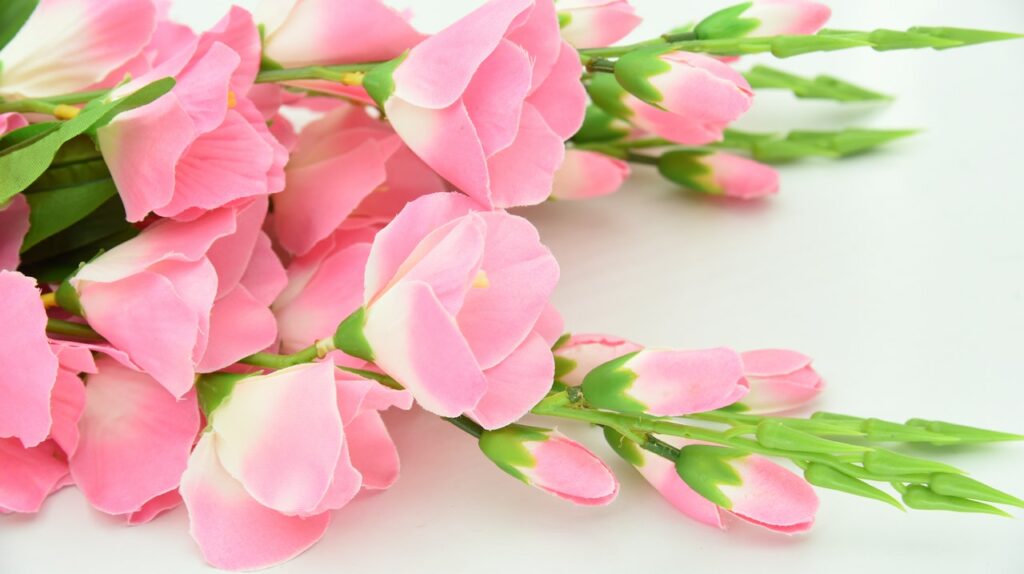Flowers are an integral feature of every Indian event. Flowers are a staple at any celebration, old or new. It has deep roots in Indian traditions. Flowers are an integral element of daily life in India. A devotional prayer honoring goddesses will kick off the festivities. Online flower delivery has become commonplace in India as a result of the country’s growing appreciation for floral art. Flowers are a must-have at any celebration, party, festival, or wedding. In addition to their therapeutic value, they are also being put to good use in the kitchen. The country has been blessed with extraordinary online flower kinds, each with its own set of qualities and characteristics.
Lotus – Flowers
There is greater mythical significance and linkages to flowers with Indian Gods and Goddesses than in any other culture in the world, and the lotus happens to be the national flower of India. Both Goddess Lakshmi and Goddess Saraswati play significant roles in Indian mythology. Lord Brahma, the creator, is often represented in Hindu art as sitting atop a lotus that blooms from the navel of Vishnu. Yantra motifs, as do lotus symbols in many secular decorative patterns, feature prominently. For Buddhists, the lotus flower represents God, prosperity, wisdom, enlightenment, and fertility. As the lotus is India’s national flower, it also receives significance.
Mogra
Weddings are made more beautiful with cascading strings of mogra, also utilized in ritual offerings. In addition, jasmine gajra is a common accessory for women’s traditional hair buns. White, fragrant petals represent innocence, spirituality, and good fortune. Jasmine blossoms are commonly utilized in rituals such as weddings, festivals, and religious events.
Rose – Flowers
In many cultures, roses are considered a symbol of love and beauty. It comes in a staggering 24 various tones, including the colors of the online roses as well as yellow, red, white, pink, blue, lavender, peach, cream, and a plethora of others. Roses represent ardor, love, vitality, success, and joy. Because of this, it is also commonly used in wedding ceremonies and serves as a sign of love. Roses are a common floral offering to deities of many pantheonic traditions. Goddess Laxmi, Lord Venkateshwara, Lord Muruga, Lord Ganesha, Lord Perumal, and Goddess Meenakshi are all said to favor roses.
Star Jasmine
Kunda is revered by Vishnu for its pristine beauty and its pure white blossoms. Flowers play an important role in the rituals and worship of the gods and goddesses of Manipur. The flowers from the Kunda are utilized as garlands during the wedding ceremony.
Marigold – Flowers
Marigold heralds joy, good fortune, and optimistic vibes. Marigolds are a popular choice for decorating churches, mosques, and reception halls. They are used in religious rituals by being strung together to make colorful garlands that are then presented to deities. Marigold’s sunny orange and yellow hues are thought to protect against evil and usher in prosperity.
Chrysanthemum
It stands for happiness, hope, and a long life. The chrysanthemum is a popular flower for celebrations, decorations, and bouquets. As a token of one’s appreciation, they are frequently presented as presents. During ancestral worship rites in several regions of India, chrysanthemum flowers are traditionally offered to the souls of the departed.
Sunflower – Flowers
People find beauty in the flower’s big, sunny yellow petals. Sunflowers represent prosperity, plenty, and harvest celebrations. These flowers are cultivated for both their edible seeds and the oil that can be extracted by pressing them. Sunflowers are utilized ceremonially and decoratively in India because of their good fortune.
You may also like
-
Best Times of Year for Rain Gutter Installation in Wisconsin: What Homeowners Should Know
-
How to Create One-of-a-Kind Engagement Invites That Tell Your Story
-
Unveiling the Top Picks: The Ultimate Guide to the Best Head Shavers in 2024
-
Choosing The Right Palette Insights into Professional Painting Contracts
-
Wear Your Imagination: Customized Text and Graphics T-shirt Printing in Sharjah

